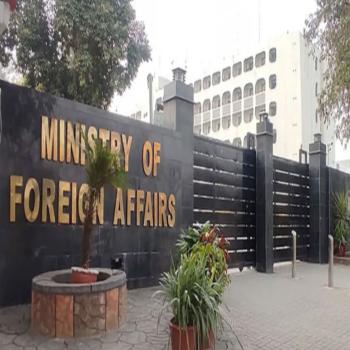A delegation of the International Monetary Fund (IMF) will visit Islamabad in early to mid-March to talk about the first review of Pakistan's Extended Fund Facility (EFF) program, the international lender said in a statement.
"The IMF staff delegation is planning to visit Pakistan in early to mid-March to talk about the first review of Pakistan's program that is supported by the Extended Fund Facility and the government's request for help under a Resilience and Sustainability Facility (RSF) arrangement."
"In this regard, a technical team will begin meetings in Pakistan in late February to talk about technical issues related to a possible RSF arrangement," the statement said.
Not having enough money Pakistan is currently getting a $7 billion loan from the IMF and is having a hard time getting back on its feet.
The South Asian country almost defaulted on its debt because its savings weren't enough to cover a month's worth of limited imports.
If the study goes well, the IMF may release about $1 billion. The Pakistani government and central bank are still sure that they will be able to reach their goals.
On Thursday, Khurram Schehzad, a spokesman for Pakistan's finance minister, said that an IMF team will visit Islamabad next week to talk about how to help Pakistan get about $1 billion in climate funding.
He told Reuters that the team would be there from February 24 to 28 to "review and discuss" funds for climate resilience.
The money will be given out through the Fund's Resilience and Sustainability Trust, which was set up in 2022 to offer long-term discounted cash for climate-related spending like adapting to climate change and switching to cleaner energy.
In October of last year, Pakistan officially asked the IMF under the trust for about $1 billion in funds to help the country deal with its climate change risk.






